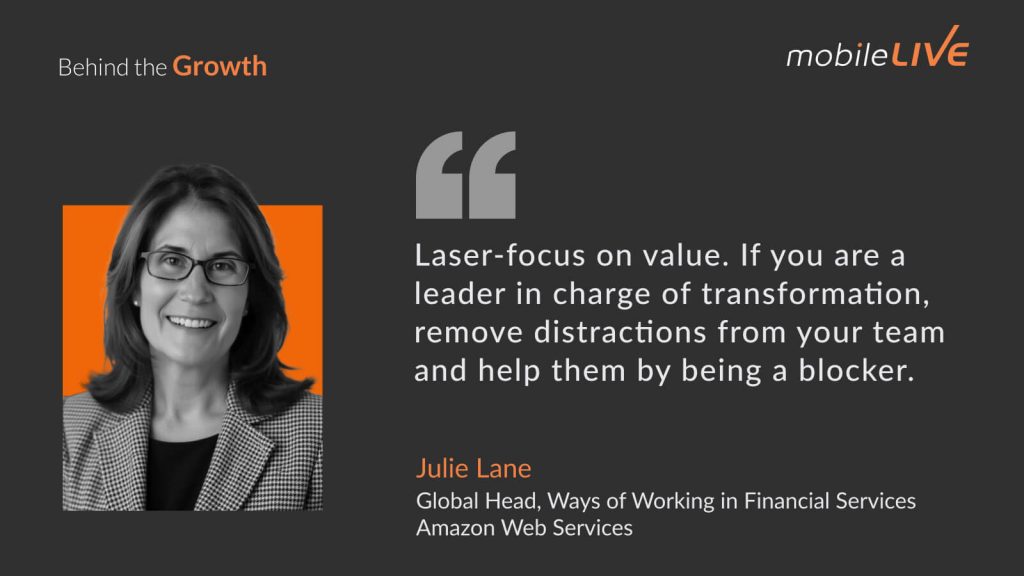Key Insights
Embrace a Customer-Centric Approach
Building products with a customer-centric mindset is crucial for success. Teams that prioritize the voice of the customer and use feedback to guide development are more likely to create valuable products. This includes understanding customer pain points and working backwards from their needs to develop solutions. This focus ensures that products resonate with users and deliver real value. Teams should act as if the customer is present during development discussions. Using personas and journey maps can help visualize the customer experience and ensure alignment across teams. This approach fosters a deeper understanding of the customer and their needs, resulting in products that truly meet their expectations.
Navigate Regulations Proactively
Regulatory compliance is a significant challenge in financial services. To succeed with digital transformation, engage with regulatory changes proactively. Attend industry events, participate in internal discussions, and ask questions to understand the implications of new regulations. Develop strong relationships with governance, risk, and compliance teams. These teams are essential partners in navigating the complex regulatory landscape. By working together, organizations can balance innovation with compliance and avoid potential roadblocks. Early collaboration with GRC teams helps shift risk left, ensuring that compliance is integrated from the start of the product development lifecycle.
Prepare for AI with Data and Cloud
A strong data foundation is essential for effective AI implementation. Organizations must prioritize data hygiene and accessibility before embarking on large-scale AI projects. Rushing into AI without addressing data issues can lead to setbacks and wasted resources. Cloud computing is also a key cornerstone for future AI efforts. It provides the flexibility, scalability, and cost-effectiveness needed to support AI initiatives. By investing in cloud infrastructure and data management, companies can create a solid foundation for future AI success. Start small with cloud adoption, focusing on specific use cases, and then scale gradually. Invest in training to equip teams with the necessary skills to leverage cloud technology effectively.

Episode Highlights
The Importance of Omnichannel Experiences
Delivering seamless and personalized experiences across all touchpoints is crucial in today’s financial landscape. Customers expect easy access to financial services, whether through mobile apps, websites, or in-person interactions. The ubiquity of mobile has made it essential for financial institutions to adopt mobile-first strategies. This allows customers to manage their finances on the go, providing flexibility and freedom. Integrating financial services into everyday activities, such as splitting payments or making purchases while exercising, enhances convenience and customer satisfaction.
“That’s financial freedom to me. That’s, you know, when I go out somewhere, not worrying about my payments, going out with friends or a business event and being able to easily split payments. I think how it has integrated into every consumer’s life — that’s the magic in financial services.”
The Power of Partnerships with FinTechs
FinTech companies bring fresh perspectives and challenge traditional ways of thinking. Collaborations between established financial institutions and FinTechs can lead to innovative solutions that benefit both parties. FinTechs often question existing processes, identifying opportunities that larger organizations may overlook. Large institutions, on the other hand, possess in-depth product knowledge and regulatory expertise.
“FinTechs are such an amazing part of the ecosystem. They are always the ones to come to the table to ask why. Why is that done that way? And they often may see opportunities that enterprises may miss. The best collaboration I’ve ever seen is when FinTechs and enterprises come together.”
Driving Cultural Change for Innovation
Digital transformation requires more than just technology; it necessitates a cultural shift. Organizations must adopt new ways of working, embracing agile methodologies and empowering teams. This shift involves moving from traditional project management to a product mindset. Streamlining processes, such as reducing approval times and communication overhead, is critical for accelerating time to value. Focusing on actual development time rather than administrative tasks allows teams to be more productive and deliver results faster.
“It really is the mindset shift and as I said, it’s product management, it’s lean agile, it’s looking at DevSecOps and how you are automating deploys and testing, shrinking down that execution side. How do you actually get that time to value?”
The Transformative Potential of Cloud Computing
Cloud computing offers flexibility, speed, agility, and cost-effectiveness. It provides access to a wide range of best-in-breed technologies, enabling institutions to build customized solutions for their specific needs. Starting small with cloud adoption, investing in team training, and recognizing the learning curve are crucial for successful implementation. The pace of technological change requires continuous learning and adaptation.
“Cloud just makes it easier, cloud makes it more cost-effective, cloud enables that scalability when done really, really well.”







